Losing Afghanistan on the Cheap
Anthony Cordesman argues that the trends are going the wrong way in Afghanistan but that we can still win there if we act fast.
The challenges in Afghanistan, however, are very different from those in Iraq. Popular support for the United States and NATO teams has been strong and can be rebuilt. The teams have created core programs for strengthening governance, the economy and the Afghan military and police forces, and with sufficient resources the programs can succeed. The present United States aid efforts are largely sound and well managed, and they can make immediate and effective use of more money.
The Islamist threat is weak, but it is growing in strength — political as well as military. The Afghan government will take years to become effective, reduce corruption to acceptable levels and replace a narcotics-based economy. As one Afghan deputy minister put it to me during my trip: “Now we are all corrupt. Until we change and serve the people, we will fail.”
No matter what the outside world does, Afghans, the United States team and NATO representatives all agree that change will take time. The present central government is at least two or three years away from providing the presence and services Afghans desperately need. The United States’ and NATO’s focus on democracy and the political process in Kabul — rather than on the quality of governance and on services — has left many areas angry and open to hostile influence. Afghanistan is going to need large amounts of military and economic aid, much of it managed from the outside in ways that ensure it actually gets to Afghans, particularly in the areas where the threat is greatest.
This means the United States needs to make major increases in its economic aid, as do its NATO allies. These increases need to be made immediately if new projects and meaningful actions are to begin in the field by the end of winter, when the Islamists typically launch new offensives.
At least such programs are cheap by the standards of aid to Iraq. The projects needed are simple ones that Afghans can largely carry out themselves. People need roads and water, and to a lesser degree schools and medical services. They need emergency aid to meet local needs and win hearts and minds.
In both Iraq and Afghanistan, we have vastly underfunded aid and reconstruction despite missions based on a neo-conservative vision of democratization and nation building. In Iraq, at least, there is the not unreasonable excuse that it’s hard to rebuild the infrastructure while terrorists are blowing it up. No such explanation exists in Afghanistan.

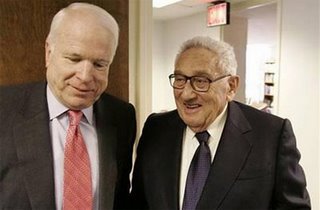
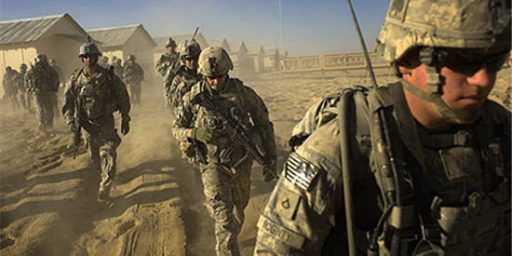
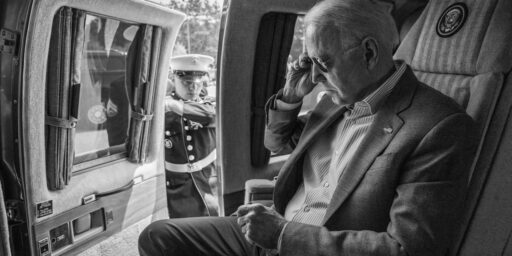
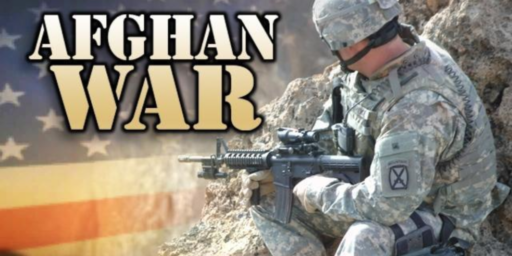
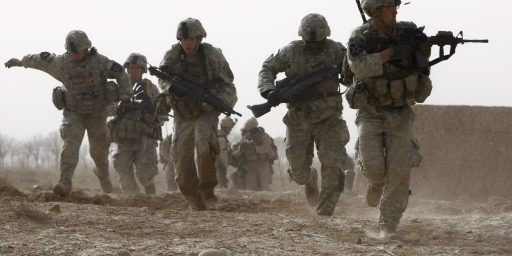
Why does anyone even waste time thinking about concepts like this when they’re not actually on the table in any realistic way until Bush leaves office? I mean really, there is no plausible way, short of a full-scale draft, that the US can contribute any military strength outside Iraq. We will _not_ pull out of Iraq so long as Bush is in power, regardless of what it does to this country or the rest of the world – Bush has made that abundantly clear.
But as long as we’re playing make-believe, I notice that Cordesman completely fails to mention the number-one stumbling block to peace in Afghanistan: Pakistan. Specifically, Pakistan’s willingness to allow, and even actively protect, Bin Laden and the Taliban strongholds on their border. Until that problem is dealt with, Afghanistan _cannot_ be salvaged. Period. Any effort that doesn’t start in Islamabad is doomed.
Cordesman is talking about more economic aid, not more troops, for Afghanistan.
At what point does that “we” you blame include our allies? Or does the US have to carry the burden alone?
?
Leaving the job half finished in Afghanistan to fight another war we had no business fighting makes it an American problem.
‘We’ championed it, planned it and led it and had ‘we’ stayed to complete it, Afghanistan would be all Iraq was supposed to be but isn’t- a shining light to all others who wish to reject the rule of fundamentalism and its accompanying evils.
At what point does that “we†you blame include our allies? Or does the US have to carry the burden alone?
If the Bush administration keeps doing stuff like this, then yes.
Legion, I agree utterly on the Pakistan problem. Pakistan is a rogue state and the U.S. is content to look the other way.
Regards, C
We didn’t go anywhere, Cian. There’s no “half done” either. I was hee in 03-03 and I’m back now. At no time has our committment in Afghanistan decreased. In fact, it has done nothing but increase since the beginning.
SGT Robert White
Kandahar Air Field
We didn’t go anywhere, Cian. There’s no “half done” either. I was here in 03-04 and I’m back now. At no time has our committment in Afghanistan decreased. In fact, it has done nothing but increase since the beginning.
SGT Robert White
Kandahar Air Field